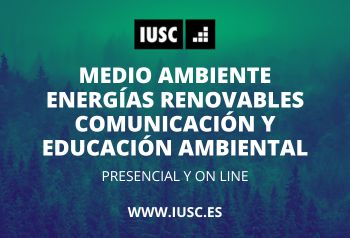Spain is among the countries that in recent years has been increasingly concerned with giving environmental training to its citizens. But according to experts, it still has a long way to go to occupy a position of preeminence among those nations that consider this type of education as primary and basic.
Definition of Environmental Training
It is understood by environmental training, the process of recognizing values and clarifying concepts to develop the necessary skills and attitudes that allow us to understand and appreciate the interrelationship between man, his culture and his biophysical environment.
Environmental education also implies a clearly practical part in decision-making and in the formulation of a individual and collective code of conduct, on issues related to environmental quality.

The problem of the Environment
It is undeniable that environmental problems have been growing dangerously over the last few decades, including climate changeocean acidification, the destruction of biodiversity, food risks in a rapidly growing demographic, vulnerability to failure of energy and drinking water supplies, etc.
The fact that the environmental concern is not considered a real priority For the citizens of most countries in the world, it means that environmental training has not yet achieved its objectives.

The strong opposition from powerful businessmen and lobbiesto the popularization of the environmental training that goes against their interests is partly to blame for this failure, but the biggest problem lies in the difficulties of integrating action-oriented and problem-solving projects into the rigid structure of the educational system. Something that little by little is changing.
Environmental Training in Spain
Los origins of the environmental education in Spain They can be located in the natural trials of Santiga (which date back to 1975, more than 40 years ago), designed by a team of ecologists and botanists from the Autonomous University of Barcelona and by secondary school teachers.
Then different initiatives have joined together, which have contributed to the popularization of the concept. In this way, the environmental training has reached schoolsto civic centers, to secondary education, to homes, etc.
The environmental education has flourished in universities, thanks to the development of educational materials and the work of environmental training centersas well as the opportunity to access qualifications in Environmental Sciences and Masters and Postgraduates and the appearance of green “jobs” in the markets. But environmental concern, in general, remains quite low and its development is punished by fluctuations in the economy.
One of the serious problems is that the environmental education is essential, but by itself it does not change collective human behaviorbecause there are always other contradictory motivations, such as the example of anti-environmentalism that is seen in many media and that makes it difficult for scientific thinking and its conclusions to reach more people.
Environmental training in the rest of the world
In countries like Sweden, Switzerland, Finland or Japan there is a environmental awareness that goes beyond training in schools or at an academic level. An example of this is that citizens have stopped calling green jobs all those tasks that are related to the protection of the environment. environmentsimply because they consider them another source of work.
Recycling, care of resources, protection of biodiversity, energy efficiency or sustainability They are completely integrated into people’s daily lives and that is the big difference between these countries and the rest of the nations in the world.
Even so, our country is taking great steps to expand the supply of environmental training and offer more and better opportunities in the renewable energy sector, the care and preservation of biodiversity or the protection of wetlandsswamps and marshes. These are just a few examples of this type of training offer, which in Spain grows, strengthens and improves every year.

